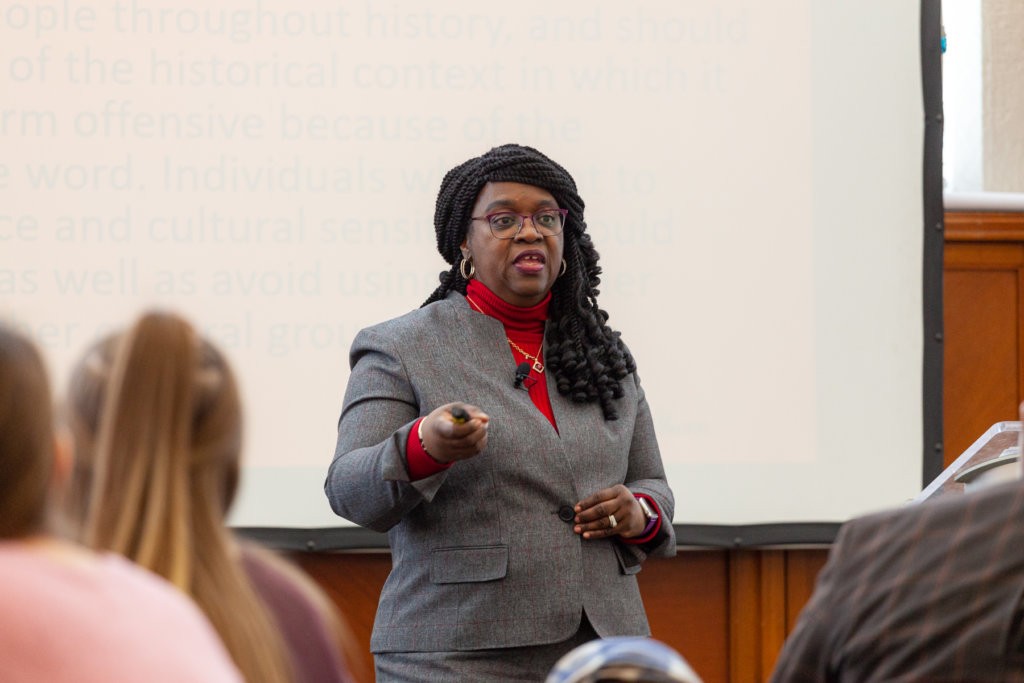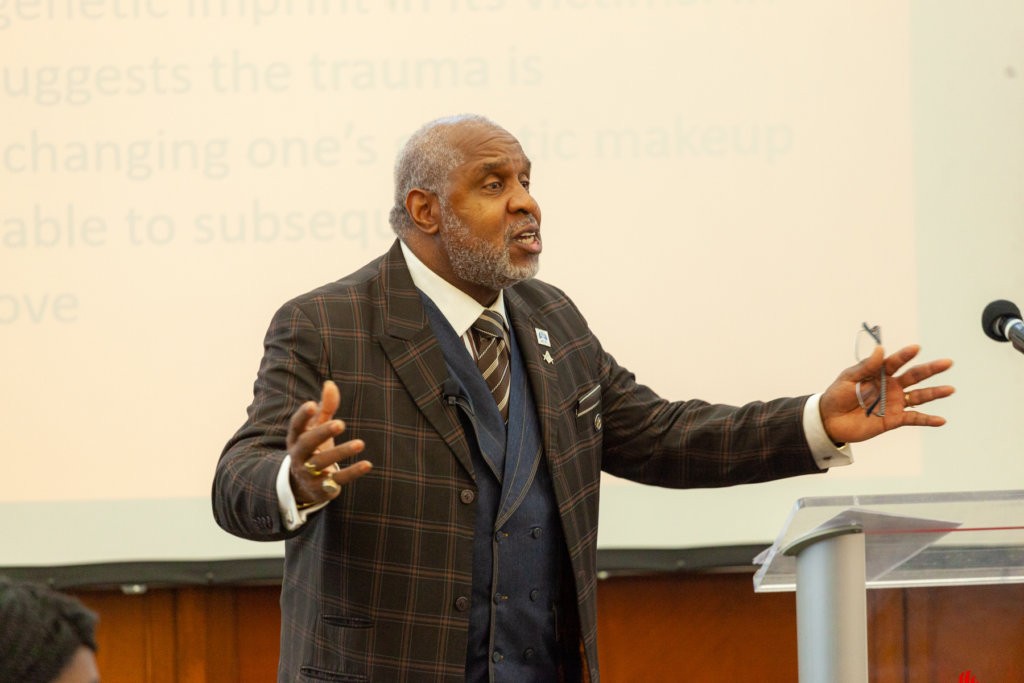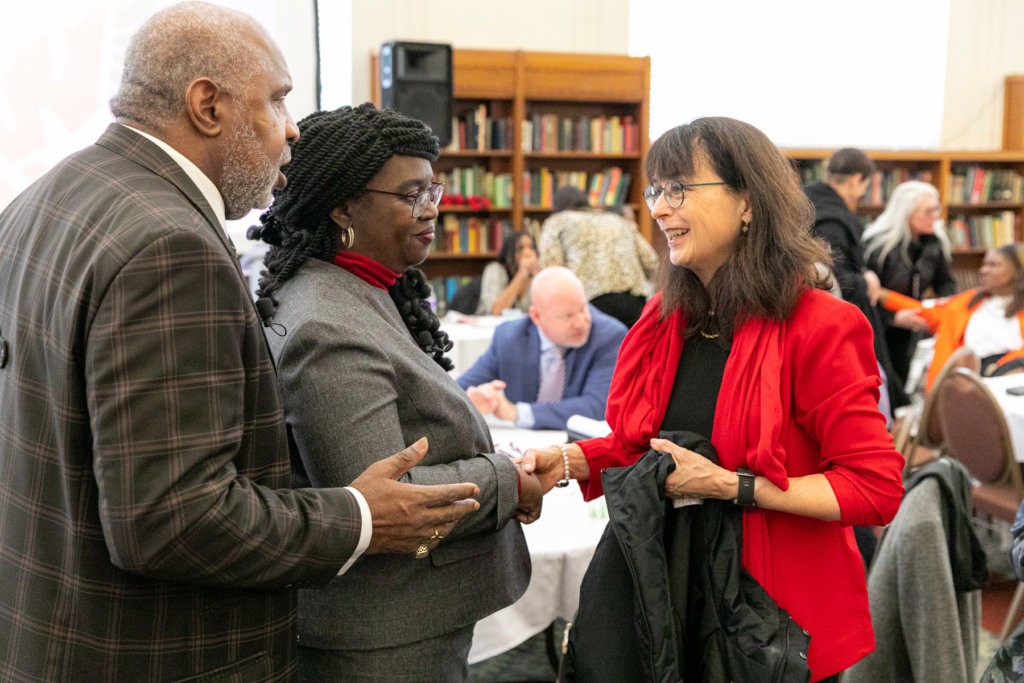Messages of tolerance, peace and social justice are fresh on our minds this week as we celebrate the legacy of Martin Luther King Jr. Those themes continued on the EWU campus Tuesday at the President’s Dialogue on Diversity, as an overflow crowd packed into the Hargreaves reading room to join a conversation on the historical use and contexts of the “n” word.
Since racially charged acts of vandalism hit the Cheney community in early December, discussions about hate speech and racial slurs, particularly the “n” word, have been circulating across campus. To help promote a productive conversation on the issue, the university invited nationally recognized speakers and educators Roberta and James Wilburn to discuss the origin and history of the “n” word, its modern uses and strategies to eliminate it.

Elimination of the word is their ultimate goal. “This is a derogatory term that is based on negative history,” said Roberta Wilburn. “It’s based on the blood of our ancestors. We find it offensive. We don’t think there’s any place for it. We understand some of you do. But as educators, social justice advocates and champions for social justice, we believe that if you are being culturally competent and culturally sensitive, you will eliminate that word from your vocabulary.”
Eastern Washington University leadership agrees.
“We would like to take a stance as a university that we will not use slurs in any capacity—whether it’s in a song or when we’re talking to our friends. I want to see Eastern start to make that pivot,” said Kim Davis, the director of diversity at EWU. “We can start to make social change.”
Student leaders voiced similar messages, urging their fellow students not to use the word. “Please don’t say it,” said ASEWU President Key Baker. “Don’t even say it in a song. It’s so simple for you to skip the “n” word in a song.”
“We shouldn’t use it because if you have an ancestor that was in the slave trade, and they came to this time and heard you say it, they would smack you,” said Tethliach “T” Chuol, treasurer for the EWU Black Student Union.
Other students sought help, asking for advice on how to persuade a friend not to use the “n” word or how to handle a situation when someone might feel pressured to use the word to fit in with a group of friends.

“You tell your brother, he defines who he is,” said James Wilburn. “He doesn’t have to degrade, demean or dehumanize himself to be equal to somebody else.”
On Feb. 1 the EWU Officer for Diversity and Inclusion will launch a social media campaign called #EWUWordsMatter. You’re invited to follow them on Instagram (ewu_diversityandinclusion), Facebook (@ewudiversityandinclusion) and Twitter (@ODIatEWU) to connect with others and talk about the impact hurtful words can have on people and solutions for a respectful vocabulary.
University leaders hope the social media campaign will continue the education and important conversations started in Tuesday’s dialogue.
“I really appreciate the president of this university valuing diversity, equity and inclusion so much to have ongoing dialogues about diversity,” said Roberta Wilburn. “This does not happen at every university. So, let’s give your president and this school a round of applause.”

If you missed the President’s Dialogue on Diversity: The Historical Use and Context of the “N” Word, you can watch it here.

